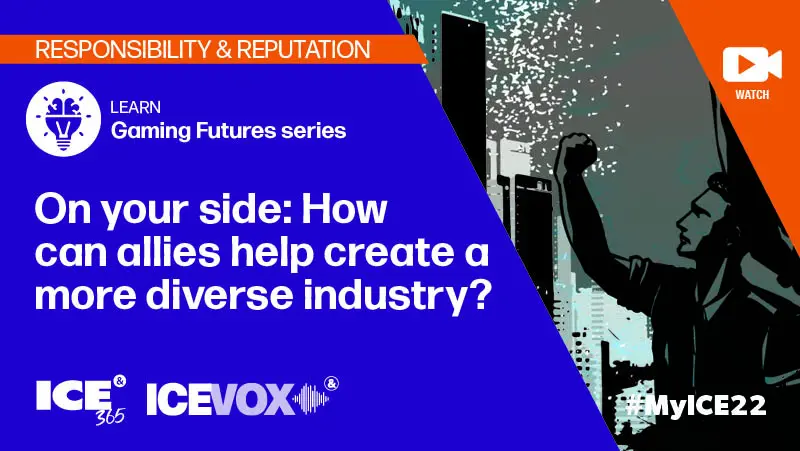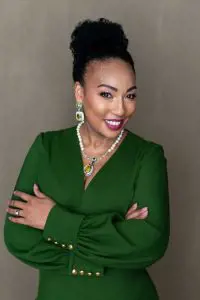On your side: How can allies help create a more diverse industry?
As diversity and inclusion becomes more talked about in the industry, female executives are voicing their opinions on what male colleagues need to do to support their growth in a sector that remains skewed towards men. MARESE O’HAGAN explores how the multi-faceted world of inclusion can be more complex than first thought.

The concept of having allies – that is, having individuals who openly support a person or cause – is an emerging topic of debate in the industry. To ensure businesses are more welcoming to a wider range of candidates, operators have to show that these people can progress, rather than simply make up the numbers.
This is also true on a wider business scale. In Fortune 500’s 2020 list of the highest-paid earners in the US, female CEOs made up 7.4% of the total, the biggest number in the list’s history.

But in terms of gender equality, being an ally can mean different things to different women. And considering the highest number in the Fortune 500’s history still fails to break into double figures, some feel that more is needed to spur change.
Charmaine Mabuza, chief executive of South Africa’s national lottery operator Ithuba, argues that it’s not enough to have internal backing – allyship has to be enshrined in law.
“There is a definite need for legislative and policy change both locally and globally where women will be prioritised, empowered, and given the same amount of exposure as our male counterparts,” says Mabuza.
Meanwhile Christina Thakor-Rankin, principal consultant at 1710 Gaming and co-founder of the All-In Diversity Project, views things differently. “I don’t want to be considered to be disadvantaged or in need of additional support in order to achieve what I want to,” she says.
“For me it was never a case of, ‘Do I need a role model? Do I need another woman as a proof of concept to say, they’ve done it, so can I’?”

However, Thakor-Rankin acknowledges that this is not necessarily a common view, praising the need for representation in high-level positions.
“I do recognise, however, that for some personalities having a role model could be a driver in the decision making process,” she adds.
Allyship in the industry
It is assumed, to some extent, that women see other women succeeding in the gambling industry and aspire to be like them. But that could be seen as putting the onus on the minority, rather than the male majority. The executives that dominate the industry have a key role to play.
I have [had allies], but a majority of them have been male,” Thakor-Rankin points out.
“That’s because for much of my career I was probably the only woman in the room, or the only woman at that level. So in terms of support, I have probably only had one who was female.”
There is certainly evidence that having women in the room has a positive impact on a business.
In 2017, management consultancy McKinsey found that gender diversity in executive teams correlated positively with measures of financial success. Companies in the top quarter of executive-level gender diversity had a 21% probability of exceeding the earnings before interest and taxes (EBIT) of companies in the fourth quartile.
This is why it is continually important to ensure diversity in the industry, beginning at corporate level. Maarja Pärt, chief executive of Yolo Group, speaks to how diversity has been a natural asset to the company.
“We’ve built one of the most diverse teams in gaming at the Yolo Group, but we didn’t sit down one day and decide to do things this way,” says Pärt. “It has happened very organically because, quite simply, it works.
“As we’re so focused on assembling a team of the very best, we’ve had to draw on people from different backgrounds. Diversity brings its own reward because we now have a team full of individuals who bring their own unique perspectives to our daily challenges.”
As well as considering women, the conversation on allyship brings in a similar line of discussion for other marginalised groups. Thakor-Rankin considers the ups and downs of recognising allyship in the gambling industry.
“On the positive we’re starting to see those in power recognising that more needs to be done to support those in marginalised groups,” she says.
“I think the negative of that is, for these particular groups, we are doing something that has not historically been done with the predominance of males, which is comparing individuals. What makes someone more influential than someone else?”
Melanie Gross, former vice president of online casino and sportsbook at Caesars Interactive, outlines a couple of possible ways to positively promote allyship and female representation – and adds one more: that a certain level of leniency may be required to create a truly conducive environment for equality.
“First, we need more male and female sponsors of talented women, she says. “Second, we need to publicise and highlight opportunities for internal high-visibility projects or the posting of open positions. Third, we need to be creative. If a candidate checks nine out of ten boxes, let’s not be so quick to reject them. Is the tenth box as important as the other nine, and if so is it a deal breaker?”
Individual talents
There is also the issue of stereotyping, with certain genders pushed towards certain roles. Many point out that marketing teams, and to an extent safer gambling units, skew more female than other sectors.

Sarah Blackburn, founder and director of PR agency GameOn, speaks of how stereotyping can affect representation within the industry.
“I do think there is pigeonholing,” says Blackburn. “I’m not sure whether that comes down to people not being given the opportunity to change roles, whether they don’t think they’re good enough.”
Maria Naveira Sund, senior vice president of engineering at sportsbook supplier Kambi, feels that stereotyping, whether intentional or not, can be combated with affirmative words and actions.
“Companies should challenge the women they have and help them to see that whatever they want to achieve is not impossible,” she says. “I remember when I had worked at Kambi for only a short time a colleague said to me, ‘You will be in the management team one day – you would be great there’.”

“I did not believe it at the time but the fact someone else thought that about me gave me that extra bit of confidence and self-belief I probably needed.”
For Thakor-Rankin, the concept of being represented should come down to individual talents, not gender identity.
“In some respects, I would hate to think I’d been given a leg up or an advantage based on who I look like, or what I look like,” says Thakor-Rankin. “Allyship seems to be about opening the door a little bit wider for some individuals from marginalised groups.”
The concept of allyship for women in the gambling industry is a complex one, purely because it cannot be concluded to one point. Obviously, and as demonstrated, efforts at diversity and inclusion are welcome, though they should never be about pandering, or included for “box checking purposes”.
As Thakor-Rankin notes: “I’m a firm believer in meritocracy and recognition for the right reasons.”